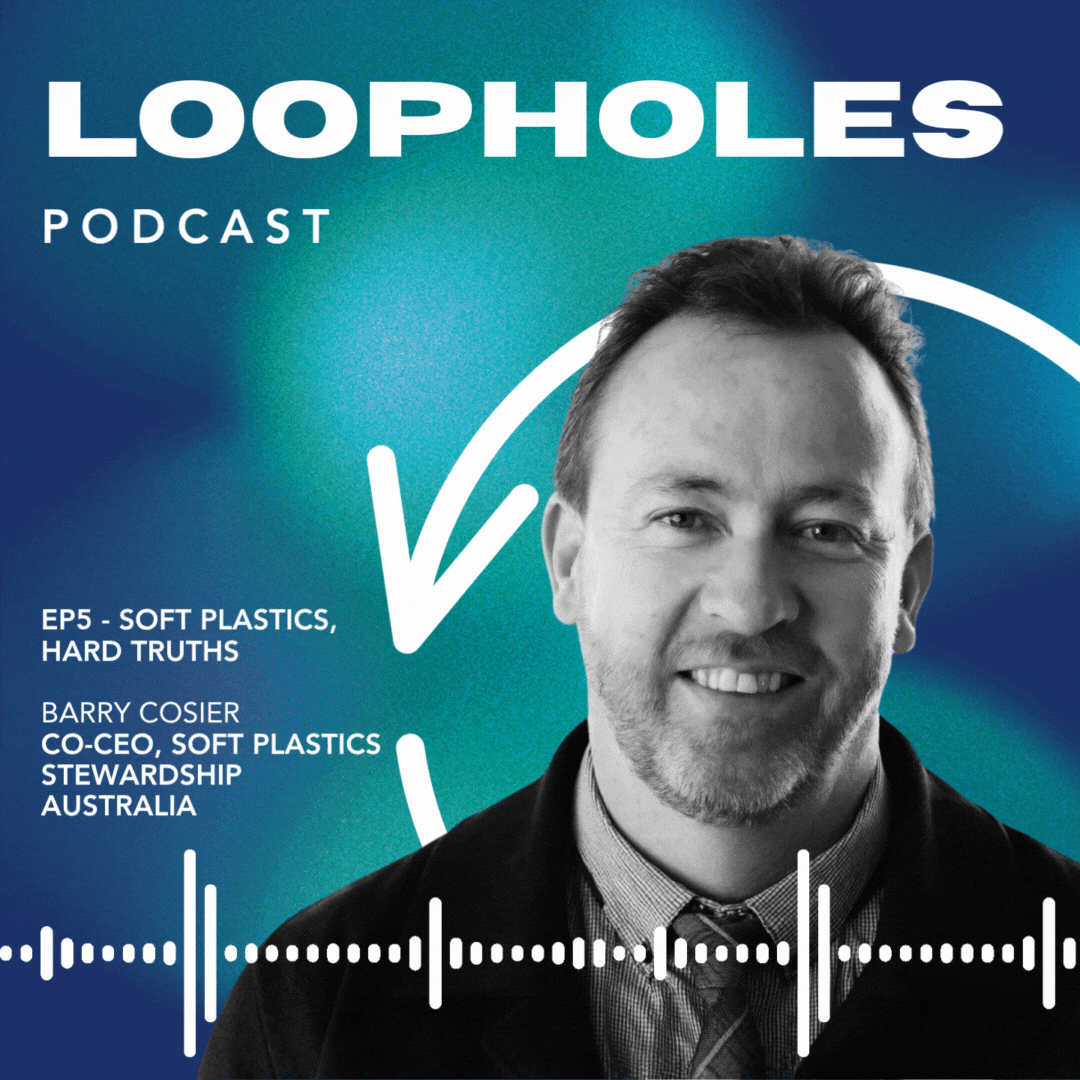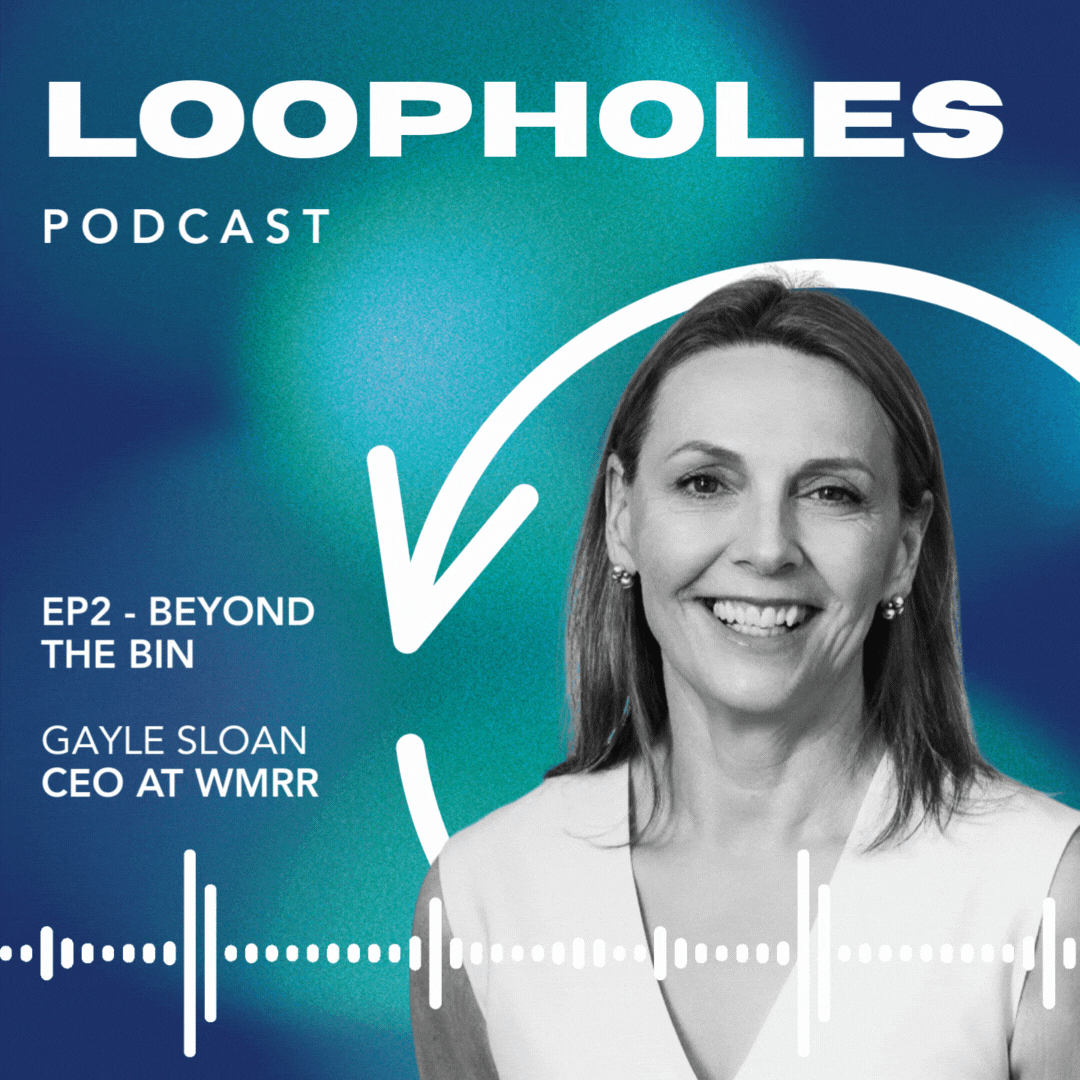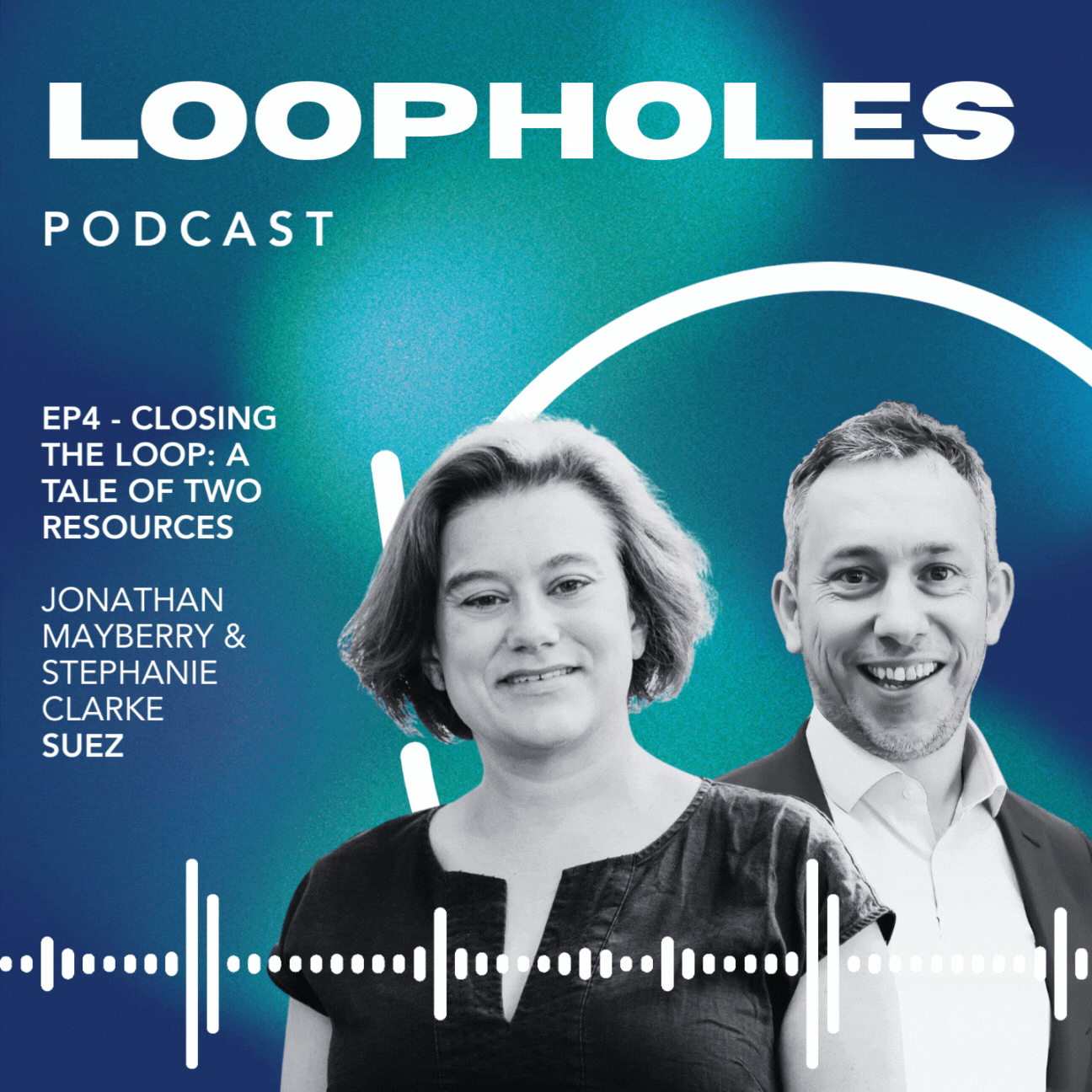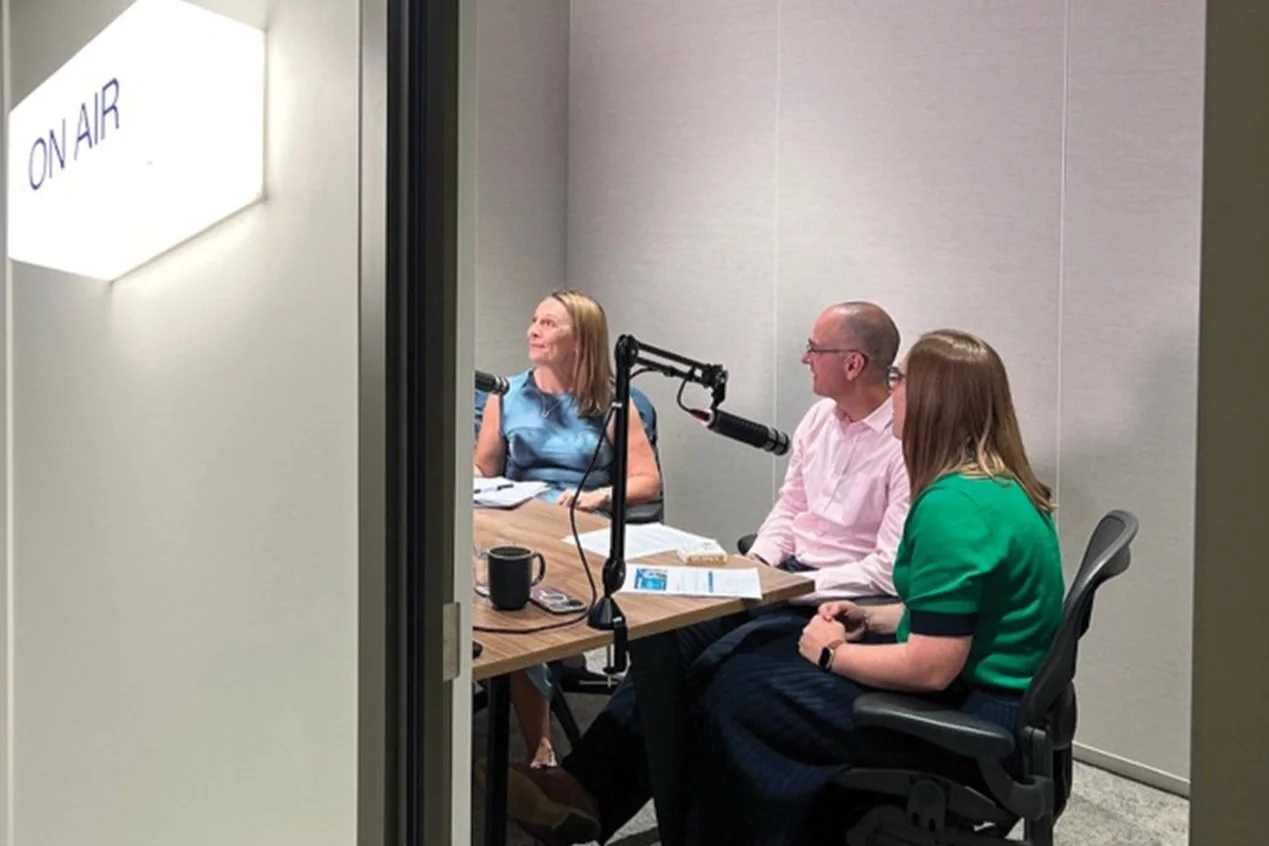Loopholes - A podcast investigating the breakdowns and breakthroughs in circular systems and infrastructure
Hosted by Sphere’s own Kate Dryden & Justin Frank from Goterra
There’s a gap between how things should work and how they do. That’s where Loopholes lives. From circular economy hacks to climate tech workarounds, Loopholes is the podcast for people who ask:
What if the problem isn’t the system—but the assumptions holding it together?
Each episode, Justin Frank, a renegade waste innovator, and Kate Dryden, a strategist reshaping environmental infrastructure, speak with the disruptors, designers and policy shapers who are finding elegant workarounds to some of the planet’s messiest challenges.
Episode 5 - Soft Plastics, Hard Truths
Barry Cosier, Co-CEO, SPSA
What do we need to address Australia’s soft plastics problem? In this episode, we sit down with Barry Cosier, Co-CEO of Soft Plastics Stewardship Australia to unpack the long road to the ACCC’s draft determination, the rise of new recycling infrastructure, and why standards, traceability, and demand are the missing links. From sausage factories to KitKat wrappers, this conversation pulls apart the myths, the gaps, and the solutions needed to finally close the loop on plastics.
Episode 1 - The FOGO Gap
-
What happens when bold organics mandates meet real world infrastructure gaps? Tony Chappel, CEO, NSW EPA joins us to unpack the risks, realities, and opportunities behind NSW’s FOGO rollout. This episode covers that and so much more. From what good leadership looks like, to ridiculous packaging, to who’s really moving the needle in circularity.
What is FOGO?
FOGO stands for Food Organics and Garden Organics. It’s a separate bin system for collecting food scraps and garden waste so they can be composted or regenerated instead of being sent to landfill. The goal is to cut harmful emissions, recover valuable nutrients, and support a more circular waste system.
The Draft NSW Waste and Circular Infrastructure Plan is open for feedback for one more week.
Now’s the time to help shape how we build the systems we actually need.📩 Submit your feedback: https://yoursay.epa.nsw.gov.au/draft-nsw-waste-and-circular-infrastructure-plan
Tony Chappel, CEO, NSW EPA
Episode 2 - Beyond the Bin
Gayle Sloan, CEO of the WMRR
-
In this episode, industry leader Gayle Sloan joins Kate Dryden and Justin Frank for an unfiltered conversation about Australia's resource recovery challenges — and how real change starts before the bin. From the politics of standardised legislation to the uncomfortable truth about overconsumption, Gayle calls out Australia's global reputation as one of the most wasteful nations and explains why we need systemic shifts in production, design, and how we measure success.
Key Topics Covered:
Why harmonising waste systems at the start matters
The missing conversation on overproduction and hazardous materials
Australia's consumption footprint — "5 planets compared to 2 in the UK"
The circular economy gap: how extraction fuels emissions
Batteries, fires, and the hidden risks in waste facilities
Celebrating businesses leading on closed-loop systems
Why carbon, materiality, and resilience are all connectedI
Episode 3 - Inside the Industry
Roslyn Florie-George, EGM, SOILCO
-
In this episode of Loopholes, co-hosts Justin Frank and Kate Dryden speak with Roslyn Florie-George, Executive General Manager of Strategic Growth and Infrastructure at SoilCo. Soilco specialises in organics recycling and compost production. Soilco works at the intersection of waste management, soil health, and regenerative agriculture by transforming organic waste, such as food scraps, green waste, and biosolids, into high-quality compost and soil improvement products.
The conversation explores the real-world challenges of building a circular economy and the critical role infrastructure plays in managing organic waste.Key Topics Covered
The realities of composting at scale, including contamination issues and infrastructure investment
Why compostable packaging is failing despite its good intentions
The green bin as a foundational but undervalued link in the circular system
The urgent need for harmonised landfill levies and planning regulations across states
The potential future of landfill mining
Check out this informative video of how SOILCO's process works:
https://www.youtube.com/watch?v=AwsSHO7qvs0
Episode 4 - The FOGO Gap
Jon Mayberry & Stephanie Clarke SUEZ
-
In this episode of Loopholes, Justin Frank and Kate Dryden speak with Jonathan Mayberry, National Sales & Marketing Manager, and Stephanie Clarke, Head of Sustainability at SUEZ — a global leader in resource management, providing essential recycling and recovery services across Australia. SUEZ plays a pivotal role in closing the loop by transforming waste streams into valuable secondary resources.
Jonathan and Stephanie dive into the dual challenges and opportunities of managing both water and waste, and how integrating these systems can unlock powerful circular outcomes. They explore what it takes to build infrastructure that treats materials not as by-products but as future inputs, and why regulation, investment, and cultural buy-in all matter equally. The conversation sheds light on the realities of resource recovery in Australia today and the innovations that could reshape the future.
SUEZ
Listen now
Season One of Loopholes features 6 episodes with bold thinkers and industry leaders, dropping weekly.
Tune in as we explore the cracks in our systems—and the people turning them into possibilities.
Listen now on
Expect conversations that:
Expose contradictions in policy, planning, and public systems
Spotlight under-the-radar innovations and unexpected alliances
Decode the fine print of the climate economy—without the spin
Invite bold thinking grounded in real-world complexity
Meet your hosts
Justin Frank (Goterra) and Kate Dryden (Sphere Infrastructure) come from opposite ends of the climate economy—one from the ground up, the other from the policy in.
In Loopholes, they combine forces to explore what happens when infrastructure meets innovation, and regulation runs up against reality. This collaboration between Goterra and Sphere brings together sharp strategy, messy systems, and the people reshaping them from the inside out.
-
Co-founder & Partner
Kate is a Principal at Sphere
Infrastructure, where she works at the intersection of climate strategy, policy design, and infrastructure delivery. With a background in government and industry, she’s a systems thinker with a sharp eye for what's missing in the mainstream narrative.
-
CCO Goterra
Justin is the Chief Commercial Officer at Goterra, known for his straight-talking style and big-picture thinking. He’s spent years turning waste problems into circular solutions, using insects and innovation to challenge how things have always been done.
Want to be a guest on the show?
Are you challenging the status quo in waste, water, energy, or infrastructure?
Do you see the loopholes others miss—and turn them into bold, practical solutions?
We're looking for industry leaders, innovators, and system shapers who aren’t afraid to talk about the hard stuff: what’s broken, what’s working, and what needs to change.
If that’s you, we’d love to hear from you.
Podcast Credits
Production & Comms - Jessica Evans
Creative & Marketing - Kate Hurst
Hosts - Justin Frank & Kate Dryden
Concept - Olympia Yarger
Recording - Brightside Studios













